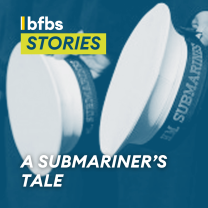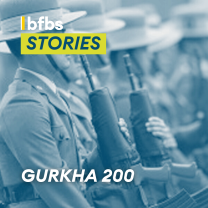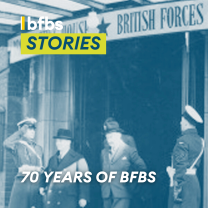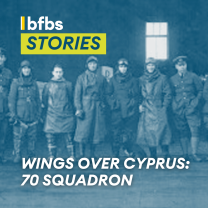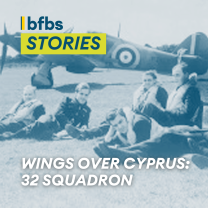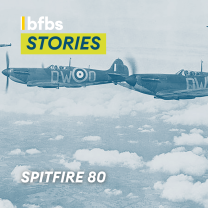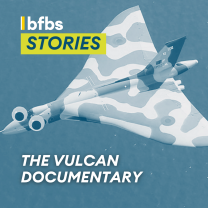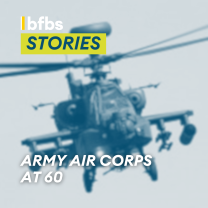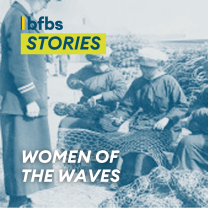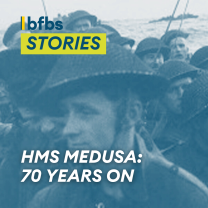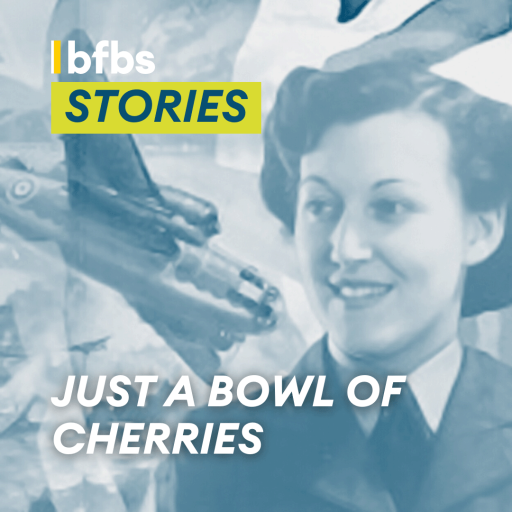

All Episodes

Listen to interesting stories from those that fought in conflicts around the world.
Gini Carlin talks to six submariners about life under the ocean. They tell her about their jobs, their skills and their pride of being a member of the Royal Navy’s Submarine Service.
They also talk about isolation, separation from their families and even the unique smell of a submarine!
Ask anyone who has served alongside the Gurkhas to sum up the skills and qualities these proud Nepalese soldiers bring to the British Army and you will be told of their loyalty, bravery and cheerfulness.
Jill Misson traces the history of the Brigade and looks at the events celebrating 200 years of service to the Crown.
Patrick Eade tells the story of the radio station for the British armed forces which began in wartime Algiers in 1943.
Hear the stories of the radio presenters who provided a much-needed boost to moral by playing the hits in troubled times and dangerous places.
We follow 70 Squadron, one of the Royal Air Force’s most well-travelled squadrons who provide strategic air transport worldwide.
In 1968 a series of programmes were made documenting the histories of the squadrons based at RAF Akrotiri at the time. Now, 50 years on and celebrating the 100th anniversary of the Royal Air Force, we are revisiting those squadrons still in existence to see where they are and how much has changed. This 30-minute special looks at the work of 70 Squadron.
We follow 32 (The Royal) Squadron, who provide Command Support Air Transport from their home base of RAF Northolt.
In 1968 a series of programmes were made documenting the histories of the squadrons based at RAF Akrotiri at the time. Now, 50 years on and celebrating the 100th anniversary of the Royal Air Force, we are revisiting those squadrons still in existence to see where they are and how much has changed. This 30-minute special looks at the work of 32 Squadron.
The Supermarine Spitfire is widely acknowledged as the iconic aircraft that won the Battle of Britain and ultimately influenced the outcome of the Second World War.
But many of the history books which credit the creation of the aircraft to designer RJ Mitchell make little or no mention of the extraordinary women who are also part of the story.
Amy Casey talks to aviation historian Paul Beaver about these incredible women who designed, perfected, built and flew the aircraft that would become the symbol of Britain’s victory. You’ll also hear about the women who gave financial backing to the project, such as suffragette Lady Lucy Houston.
This programme was made in 2016 to mark the 80th Anniversary of the Spitfire’s first flight.
Sit back, strap in and enjoy the world's first ever bom-com (bomber comedy). Could this be the birth of a new genre?
It was a sound that filled the air for more than 50 years. Heralded for its role in the Falklands War, it rated a 10 on the RAF's Howl scale. Now you can hear a unique Radio experience from Richard Hatch and Hal Stewart. A documentary like no other on the Avro Vulcan!
The WRNS, more commonly known as The Wrens, was formed in 1917 when the Royal Navy faced a shortage of men during the First World War. It was disbanded in 1919 and then revived at the beginning of the Second World War. In 1993 the Wrens were fully integrated with the Royal Navy and ceased to exist as a separate service.
Listen to a former Wren as she talks to veterans of the Women's Royal Naval Service (WRNS) and the Royal Navy about their experiences.
Written and produced by Gini Carlin in 2017 to celebrate 100 years since the formation of the WRNS.
Richard Hutchinson revisits D-Day through the story of HMS Medusa which was deployed as a Navigation Leader during Operation Neptune. For 30 hours she withstood enemy gunfire while acting as a marker to guide American troops through German minefields and onto Omaha beach.
Richard visits the D-Day Museum in Portsmouth, the famous map room in Southwick House, where President Eisenhower gave the orders for D-Day and goes on board the iconic motor launch with veterans as they retrace part of their journey in the Solent.



